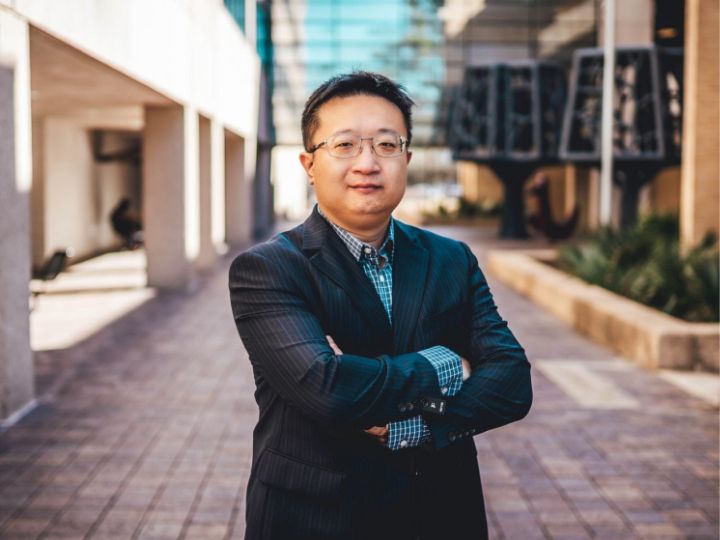Houston, Texas, the epicenter of the global energy market, and the University of Houston – the Energy University – are leading the transition towards a cleaner, more sustainable future with innovative solutions.

With three-quarters of U.S. greenhouse gas emissions stemming from burning fossil fuels for energy, it's clear that the key to curbing emissions lies in reimagining how energy is produced and consumed. In Texas, the shift is already well on its way. Technologies like giant batteries, wind turbines and solar panels are growing. Solar generation has nearly tripled, wind power is up by 25% and over 5 gigawatt-hours of battery capacity – enough to power 3.5 million homes for one hour – have been added to the grid.
Now, Jian Shi, an assistant professor at the Cullen College of Engineering with a dual appointment in the Engineering Technology and Electrical & Computer Engineering departments, is offering an innovative solution through his research – “A Unified Zero-Carbon-Driven Design Framework for Accelerating Power Grid Deep Decarbonization” - which recently earned him a National Science Foundation CAREER award. The award runs through February 2029, with $500,861 in funding.

“One of the most major challenges inherent in energy transition is the cost. While reducing carbon emissions serves the best interest of society in the long run, the short-term financial burdens also need to be carefully evaluated to ensure that we have a safe, affordable, reliable and just transition for all,” Shi said. “This challenge has inspired me to work on the innovative framework of “ZERO-Accelerator.”
The core concept behind “ZERO-Accelerator” involves integrating novel carbon-driven mechanisms, methodologies and algorithms into current power grid operational practices. This integration aims to expedite the transition from carbon-intensive to carbon-free sources for electricity generation while upholding desired operational standards and societal obligations.
“It synthesizes interactions from multiple key stakeholders involved in the electricity eco-system,” said Shi, director and founder of SOAR or the Smart and ZerO-Carbon Energy Analytics and Research Lab. “The framework considers how to manage carbon allowance allocation and trading for electricity producers, how to maintain a 24/7 zero-carbon power grid for power grid operators and how to enable consumers to understand their carbon footprint and participate in the zero-carbon grid operation.”
Another key aspect of Shi’s CAREER proposal is to train the next-generation energy workforce and prepare them to understand, engage in and ultimately lead the energy transition in the decades to come.
“As a Hispanic-serving institution with a diverse student body, UH has provided excellent opportunities for me to engage and train students from all backgrounds, to foster a more diversified and vibrant workforce in the future energy industry,” Shi added.
Shi noted that his research is only possible because of the support he has received from his colleagues.
“I believe no accomplishment is truly individual,” he said. “Rather, it is a collective triumph achieved through collaboration, support and shared dedication. As I reflect on the milestones I've reached, I am compelled to express my deepest gratitude to my esteemed colleagues whose unwavering commitment has been instrumental in not just my collective success, but our collective success as well.
Shi is looking forward to working on his ZERO-Accelerator project.
“Thanks to this award, I will now be fully dedicated to working on my long-term research goal: to transform knowledge into actionable force for impact and collaborate with key climate stakeholders to shape the landscape of future energy ecosystems in the Lone Star State and beyond.” he said.
Stephen Greenwell contributed to this story.